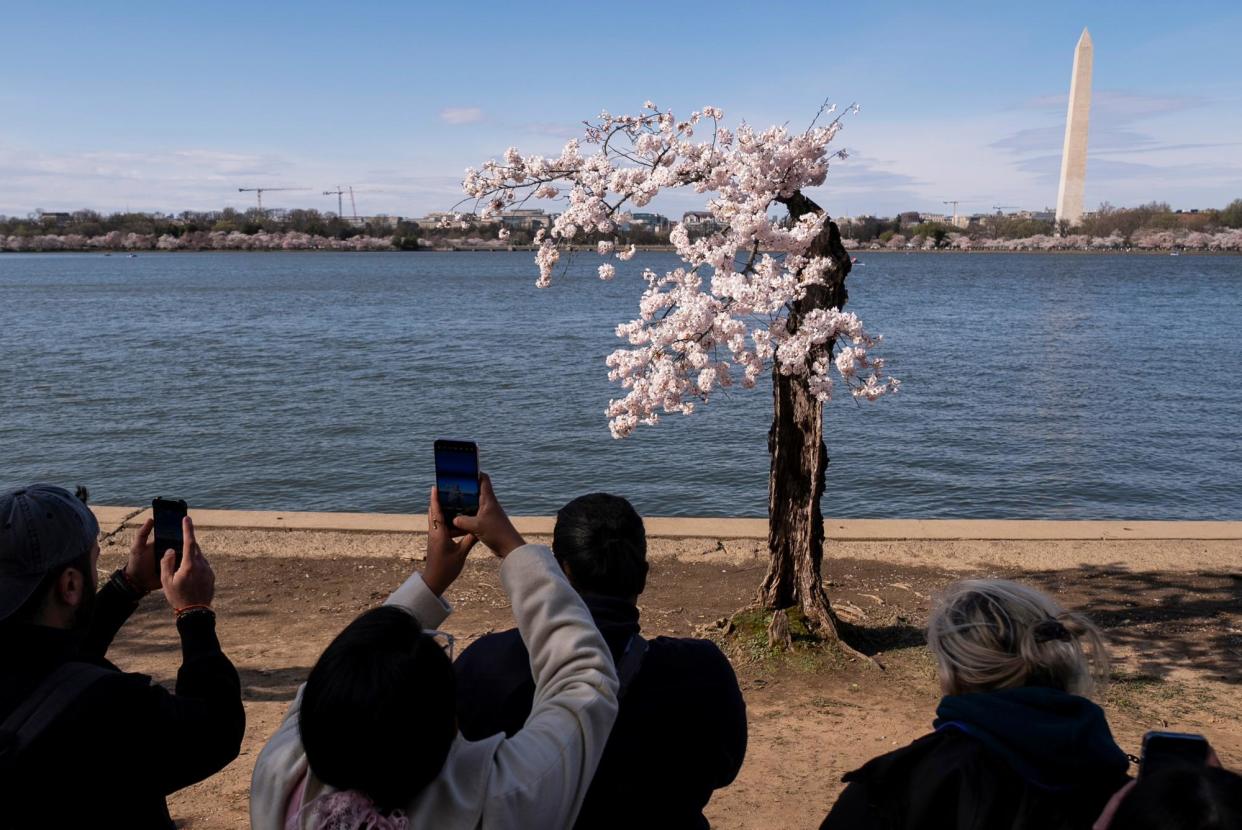Stumpy the cherry blossom on chopping block as DC to remove trees

A legendary, gnarled old cherry tree nicknamed Stumpy that became a social media phenom is about to have its last selfies in this spring’s annual cherry blossom festivities in Washington DC.
Stumpy has been listed for the chop, along with more than 100 other cherry trees along the famous walks near the Jefferson Memorial in the capital – and the climate crisis is part of the equation.
The trees will get the axe this summer when crews begin work to replace the crumbling seawall around the Tidal Basin, the area around the memorial with the highest concentration of cherry trees.
The work has been long overdue, as the deterioration, combined with rising sea levels, has resulted in waters from the Potomac River regularly surging over the barriers.
The twice-daily floods at high tide not only cover some of the pedestrian paths, they also regularly soak some of the cherry trees’ roots.
The $133m project to rebuild and reinforce the seawall will take about three years, said Mike Litterst, National Park Service spokesman for the National Mall.
“It’s certainly going to benefit the visitor experience, and that’s very important to us,” Litterst said. “But most of all, it’s going to benefit the cherry trees, who right now are every day, twice a day, seeing their roots inundated with the brackish water of the Tidal Basin.”
Litterst said entire stretches of trees have been lost to the water and can’t be replaced “until we fix the underlying cause of what killed them in the first place”. Stumpy remains alive, if in rough shape.
Plans call for 140 cherry trees – and 300 trees total – to be removed and turned into mulch. When the project is concluded, 277 cherry trees will be planted as replacements.
The mulch will protect the roots of surviving trees from foot traffic and break down over time into nutrient-rich soil, “so it’s a good second life” for the trees being cut down, Litterst said.
The National Cherry Blossom Festival is widely considered to be the start of the tourist season in the nation’s capital. Organizers expect 1.5 million people to view the pink and white blossoms this year, the most since the pandemic.
Stumpy became a social media star during the pandemic fever dream of 2020. Its legacy has spawned T-shirts, a calendar and a fanbase. News of Stumpy’s final spring has prompted people to leave flowers and bourbon and had one Reddit user threatening to chain themselves to the trunk to save the tree.
The National Arboretum plans to take parts of the tree’s genetic material and create clones, some of which will eventually be replanted at the Tidal Basin.
The regular flooding at the Tidal Basin – sea levels have risen about a foot since the the seawall was built in the early 1990s – is just one of the ways climate change has affected the cherry trees. Rising global temperatures and warmer winters have caused peak bloom to creep earlier in the calendar.
The Associated Press contributed reporting


